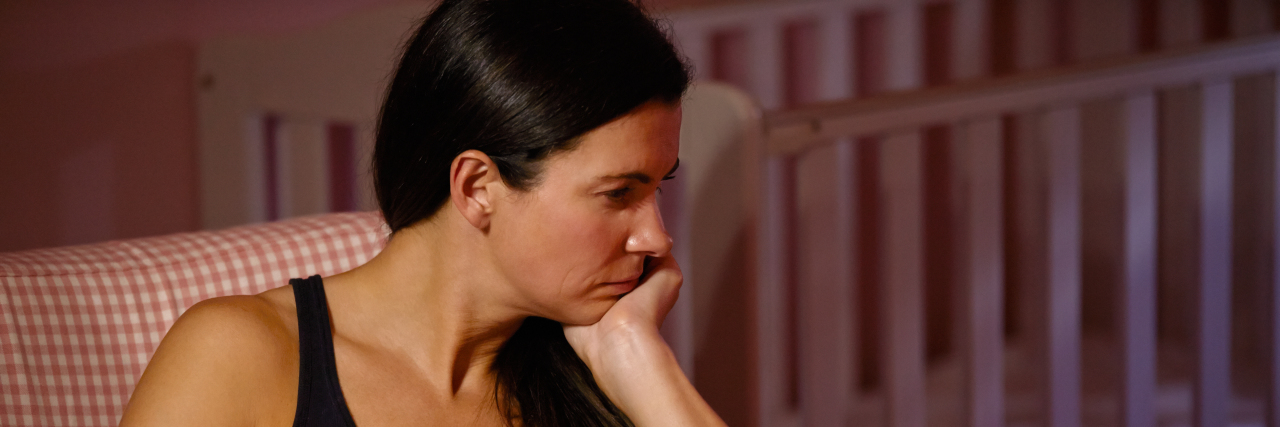Postpartum depression (PPD) is not just unbalanced hormones, exhaustion or lack of happiness. PPD is so much more, and it can manifest for various reasons.
I experienced hormone changes, exhaustion, rage, lack of bonding and loss of interests. However, my PPD also arose from triggers related to past sexual abuse. In my research, the connection between past sexual abuse and postpartum issues seemed limited. According to the American SPCC, 1 in 4 girls will be sexually abused before they turn 18, so perhaps this should be an issue that’s addressed more in prenatal and postpartum care.
Labor was the most intense pain I have ever felt. The pain, coupled with the number of professionals looking, touching and probing me was more than just uncomfortable. It was traumatizing. I felt violated all over again. I felt like I had no voice and that others were telling me what to do. I was told when to push, when to breathe and how to position my body. I was not allowed to resist.
There was a point when I was about to deliver my baby that I closed my eyes and tried to mentally get away. It was something I had done as a child and I resorted to that escape again. When my baby was born it was hard to be present, bond and hold her because I was feeling so traumatized by what had happened. I had nightmares about it weeks after coming home with my daughter.
I could consciously distinguish between what happened to me as a child and what happened while giving birth to my daughter. But the physical feelings felt the same. It made me anxious, depressed and isolated.
I tried to move past the birth experience. I would tell myself that the doctors and nurses were all professionals doing their job. Their job was to make sure my baby and I were healthy and well. They helped bring my lovely daughter into this world and made sure I got what I needed.
Breastfeeding was another trigger for me and contributed to some of my postpartum issues. On one hand, breastfeeding was easy for me. I had an ample supply of milk, my daughter latched properly and nursed well. On the other hand, her demand for my body drove me to tears. My body was hers when she needed it. When she was hungry, I was the only one that could satisfy what she needed. I could consciously distinguish between her needs as a newborn baby versus what I went through as a child. But to my body it all felt the same. Every time she cried, I got angry that once again my body was needed for someone else. This led to intense feelings of guilt. I was lucky to have an easy time breastfeeding and I was able to feed and nourish my daughter. Yet I was making it more difficult then it had to be by associating her demand for food with my abuser’s demand to satisfy his sick desires.
Lastly, I worried about the level of affection I was supposed to show her. I was so confused by what I had gone through as a child, that I doubted my ability to be a good mother. I knew I would never hurt her, but I didn’t even want to do anything that might seem inappropriate. I was nervous about having to take her temperature, administering diaper cream or just even giving her a proper bath. I never wanted to do anything potentially harmful. The responsibility and worry over if I was being a good mother was overwhelming.
Counseling, medication and researching postpartum depression led me out of the dark hole I found myself in. I learned that women who experienced abuse in their past often have the same kind of postpartum difficulties I did. I had some tough sessions with my counselor talking about past abuse and the connection to how I felt when my daughter was born. It helped immensely to process those feelings. I also made a list of things I can do differently in the labor and delivery process, should I have another baby in the future. With knowledge and planning comes a sense of control and power. In regards to breastfeeding, I found a way to take control back without feeling guilt. I started to exclusively pump. I was able to control when I pumped and then I, or someone else, could help bottle feed my daughter.
Postpartum issues arise for many reasons. Not all of those reasons are so plainly pointed out in textbooks or pamphlets. It is important to stay in tune with your body and feelings, and reach out when help is needed.
If you or a loved one is affected by postpartum depression or other postpartum disorders and need help, you can call Postpartum Support International‘s hotline at 1-800-944-4773.
We want to hear your story. Become a Mighty contributor here.
Getty image via mokeybusinessimages

